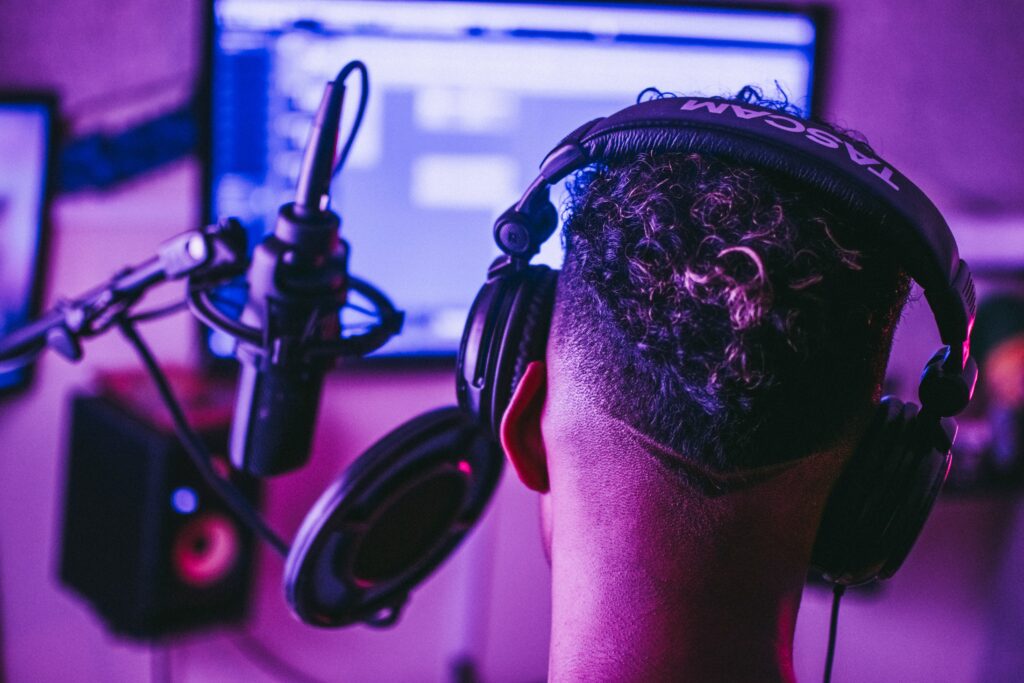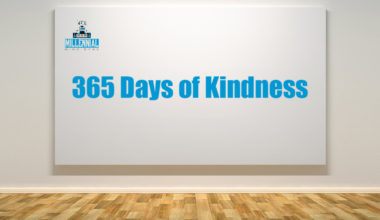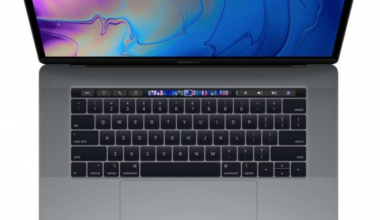
Releasing an album can be a daunting task, especially if you’re doing it for the first time. As a music industry professional who has gone through the process myself, I understand the challenges that come with creating a full-length record. This article will explore how to make an album for beginners.
Before we get started, I can assure you that with a clear plan and a step-by-step approach, it’s totally possible to create an album that you’re proud of and that resonates with your audience.
So whether you’re a seasoned musician looking to take your career to the next level or a first-time artist exploring the world of album releases, this guide will provide you with the tools and insights you need to succeed.
When is the right time to make an album?
It’s important to understand the right format for your music release. While there are many options available, such as EPs and singles, I believe that albums remain the gold standard for a reason.
When you create an album, you have the opportunity to put in a significant amount of time, effort, and resources into creating a cohesive body of work. This level of dedication and attention to detail is not always possible with a single or an EP.
Not only does an album provide you with the chance to express yourself creatively on a deeper level, but it also allows you to tell a story and take listeners on a journey. This is something that fans truly appreciate and can connect with on a more emotional level.
Of course, EPs and singles have their own unique benefits as well. EPs can be a great way to release a batch of new music without taking up too much time or resources. And singles can help you maintain a consistent presence and keep your name in front of your audience.
That said, I firmly believe that albums are the pinnacle of music releases. They offer a level of depth and emotional resonance that cannot be replicated by any other format. So if you have the opportunity and the resources, I encourage you to pursue an album release and make the most of your artistic vision.
Writing and selecting songs for your album
Creating an album is a deeply personal and artistic endeavor, and there are many different ways to approach the process of writing and compiling songs. Some songwriters set out to create an intentional theme or message with their album, while others simply write songs and notice a natural thematic pattern emerging over time.
For me, personally, I often find that the songs I’m writing start to come together thematically, and I realize that I have the makings of an album on my hands. Regardless of your approach, the key question to ask yourself is whether the songs belong together and create a cohesive statement, both thematically and musically.
When it comes to the number of songs on an album, there is no hard and fast rule. While most albums typically have 10-13 songs, there are exceptions on both ends of the spectrum. Some albums have as few as 9 songs, while others have 20 or more. Ultimately, the number of songs on your album should be determined by what feels right for your artistic vision and message.
Once you’ve written and compiled your songs, the next step is to create a plan for bringing your album to life. This may involve finding a producer or engineer to help you record and mix your songs, selecting artwork and packaging for your album, and planning a release strategy to get your music into the hands of fans. The process of creating an album is an exciting and challenging one, but the end result is a lasting statement that reflects your artistic vision and creativity.
Staying focused and organized
To ensure that your album is a success, it’s important to have a clear and comprehensive plan in place. Here are some key components of a successful album creation plan:
- Define your goals: Start by clarifying your goals for the album. What do you hope to achieve with this project? Are you aiming for commercial success, critical acclaim, or artistic fulfillment? Defining your goals will help guide your decision-making throughout the process.
- Create a timeline: Break the album creation process down into smaller, manageable steps and create a timeline for each stage of the project. This will help you stay on track and ensure that you’re making progress towards your goals.
- Set a budget: Determine how much money you’re willing and able to invest in the album creation process. This will help you make informed decisions about things like recording, mixing, mastering, and promotion.
- Choose your collaborators: Consider who you want to work with on the project, such as producers, engineers, session musicians, and visual artists. Choose collaborators who share your vision and can help bring your artistic vision to life.
- Develop your songs: Spend time honing your songs and ensuring that they work well together as a cohesive whole. Consider factors like lyrics, melody, arrangement, and production.
- Plan your release strategy: Determine how you will release and promote your album, including distribution, marketing, and touring. Consider working with a record label or distributor to help you reach a wider audience.
By having a solid plan in place, you can increase your chances of creating a successful album that resonates with your audience and achieves your goals. I’ll dive deeper into the planning process in the next section of this article.
Proper budgeting for your album
Running out of money during one stage of the album creation process can be a major setback, so it’s important to plan ahead and make sure you have the resources you need to see the project through to completion.
Before you even start recording, take the time to carefully consider your budget based on the number of songs that will be on the album. Here are some key questions to ask yourself as you create your budget:
- Will you be hiring musicians or playing all the parts yourself?
- Do you want to work with a producer, or will you be producing the album yourself?
- Will you be mixing the songs, or will you need to hire a professional mixing engineer?
- Who will handle mastering? Would you prefer to use an automated mastering service?
- Do you plan to hire an artist to create the album artwork, or will you create it yourself?
- How much will distribution cost, and what options are available to you?
- Do you plan to spend money on promotion? If so, how much are you willing to invest?
By answering these questions and creating a realistic budget, you can avoid the pitfalls of running out of funds and ensure that you have the resources you need to create a high-quality album. Remember, careful planning is key to the success of any creative project.
Your recording space or studio

Finding the right recording space or studio is a key component for creating a successful album. Fortunately, there are more options available than ever before, which is great news for aspiring musicians and producers.
While your options may be limited, there are several important factors to consider when choosing a recording space:
- Does the space have enough room for your equipment?
- What is the noise level inside and outside the room?
- Can you treat the space with acoustic panels, diffusers, or bass traps to achieve the desired sound?
- Is the space too small (resulting in a dead sound) or too large (resulting in excessive echo)?
- What times of day will you need to use the space?
As an experienced producer, I’ve recorded albums in a variety of spaces, including bedrooms, basements, garages, and even a walk-in closet. I understand how to work with what you have and make the most of your available resources.
However, it’s important to carefully consider your options and choose a space that you know will work for the entire duration of the album creation process. You don’t want to risk having to move your equipment halfway through the recording process, which could be disruptive and negatively impact the final product. By choosing a recording space that meets your needs and can accommodate your equipment, you can ensure a smooth and successful album creation process.
Creating and being accountable to your schedule and timeline
While it can be challenging to estimate how long the album making process will take for your project, it’s essential to do your best to create a realistic timeline and stick to it.
A general rule to follow is to finish each stage of the process before moving on to the next. This means completing all songwriting before starting the recording process, finishing recording and editing before moving on to mixing, and completing mixing before starting the mastering process.
As you begin the recording process, it’s important to have already finished writing the songs and selected only the best ones for the album. From there, you can estimate how long it will take to fully record each song. Will it take a week, a month, or longer? Do you want to record multiple songs at once?
Once you have a general timeline in place, it’s important to set up a schedule and stick to it. If you know you’ll have three free nights a week, block off that time in your calendar for recording and hold yourself accountable to it.
Remember, it’s always possible to adjust the timeline and schedule as needed, but having a basic plan in place will help ensure that you’re making steady progress towards your goal of creating a high-quality album.
Mixing and Mastering Your New Album
As a seasoned music industry professional, I understand the importance of the mixing stage in the album creation process. While mixing your own music can save you a significant amount of money and allow for maximum creative control, it’s important to be aware of the potential downsides.
One major challenge of mixing your own music is the loss of objectivity. After hearing the same songs countless times during the recording and editing stages, it can be difficult to distinguish what sounds good from what needs work.
To counteract this, I highly recommend sharing your songs with a friend or two who have a good ear for music. Ask for their feedback and consider paying them for detailed, intentional feedback if you have the budget. You can credit them as production help in the album credits.
Additionally, I recommend hiring a mastering engineer to ensure the highest quality final product. A mastering professional with a fresh set of ears can hear things in your mix that you might have missed, and can provide valuable feedback to help you make any necessary adjustments before the final master.
If you can’t afford a mastering engineer, there are other options available, such as automated mastering services or mastering the tracks yourself. Regardless of the approach you take, the key is to get other ears involved to help ensure a polished and professional final product.
Releasing your new album
Congratulations! You’ve invested time, energy, and resources into creating an album with professionally recorded, mixed, and mastered songs. Now, it’s time to get your music out to the world and start building your fanbase.
There are a variety of ways to promote your album and reach new listeners, from social media and email marketing to live shows and collaborations. By leveraging these tools and strategies, you can increase your exposure, connect with fans, and grow your music career.
So let’s get started on this next exciting phase of your musical journey and spread the word about your new album!
Registering your music to collect your royalties

It’s essential to sign up with a publishing rights organization (PRO) to collect songwriting royalties. In the United States, PROs like BMI, ASCAP, and SESAC are the major players, while SOCAN is the primary PRO in Canada. The best part? Signing up with a PRO is free, so there’s no reason not to do it.
To collect publishing royalties, it’s important to sign up with a publishing administration company like Songtrust. Some digital distributors, such as DistroKid, offer publishing admin services as optional add-ons.
Finally, to collect mechanical royalties, you’ll need to register your songs with SoundExchange. While this can be a time-consuming process, it’s worth it to ensure that you’re receiving all the royalties you’re entitled to. In fact, SoundExchange is the only company in the United States that collects mechanical royalties.
By registering your songs with the appropriate organizations and companies, you can rest assured that you’re receiving the royalties you deserve for your hard work as a songwriter and musician.
I previously wrote an in-depth article on royalty collection, so give that a look after this one.
Designing you album cover
As an experienced music industry professional, I understand the importance of presenting your album to the public in the best possible light. One key aspect of this is creating a compelling album cover that will catch people’s attention and make a great first impression.
If you have the budget for it, I highly recommend hiring a professional artist or designer to create your album artwork. I’ve carefully curated some of my favorites. However, if this isn’t an option, there are still ways to create a high-quality cover on a budget.
One option is to use a free website like Canva, which offers a variety of templates and design tools to help you create a professional-looking cover. With its user-friendly interface and helpful features, Canva makes it easy to design a cover that truly represents your music and captures the attention of potential listeners.
As an industry professional, I’ve used Canva to create artwork for many of my own releases, and I’ve been impressed with the quality of the final product. Whether you choose to hire a professional or create your own cover, remember that the album artwork is an essential element of your release and should be given careful consideration.
Choosing the right digital distribution platform

There are many companies that can send your music to popular streaming services like Spotify, Apple Music, and TikTok, among others. These are called digital distribution platforms. I have ranked the top 20 in a previous article.
When it comes to distribution, it’s important to plan ahead. I recommend uploading and scheduling your album for distribution 2-4 weeks before the release date. This gives the distributor ample time to review and approve your album so that it hits stores on time.
It’s also important to note that different distribution companies offer different options and features. To find the best fit for your needs, I recommend checking out our review of a few popular distributors, which you can find here. By choosing the right distribution partner, you can ensure that your music is reaching the widest possible audience and making a lasting impact on listeners.
Create and execute on your promotional strategy
Promoting your music can be overwhelming. With so many options available, it can be hard to know where to start.
That’s why I recommend focusing on the basics when it comes to music promotion. Here are some key elements that should be a part of your music marketing plan:
- A music video, even if it’s shot on your smartphone or it’s a simple lyric video
- Creating a website that matches the style of your album artwork and keeping it updated with new information and content
- Hiring a photographer or asking a friend with a good smartphone to take press photos that can be used on your website and social media accounts
- Writing a new artist bio that highlights your unique style and story
- Starting an email list and adding a signup form to your website’s homepage to collect email addresses from fans and potential listeners
- Creating an electronic press kit (EPK) that includes key information about your music, including bios, press photos, and links to your music and social media profiles
- Submitting your songs to playlists, blogs, and YouTube channels using a platform like SubmitHub.
Even if you’re not a fan of marketing, taking the time to develop a thoughtful promotion plan can make a huge difference in getting your music noticed and reaching new listeners.
What’s next after you learn how to make an album?
Now that you know the steps required to make an album, it’s time to execute.
Yes, there are a lot of things to consider, but it is totally achievable. Create a thorough plan and execute.





